Kellingley Colliery: The miners at the coalface
- Published

"It's not like any other job in the world. You work 800 metres underground and travel for 90 minutes scrunched up on a little train, sweating, and then get off and do your job."
John Tempest started as a miner in 1964, straight after school and finally left Kellingley Colliery in North Yorkshire in 2007.
Kellingley, one of the country's last deep coal mines, is due to close in 2015. How do the miners, many of whom have worked their whole lives underground, feel as the pit enters its final few months?
On the North and West Yorkshire border, production began at Kellingley in April 1965 and at its height it employed 2,500 people.
UK Coal announced plans in April to close it, with the loss of 700 jobs.
Up to 900 tonnes of coal an hour can be brought to the surface through one of two shafts 2,625 feet (800 metres) deep.
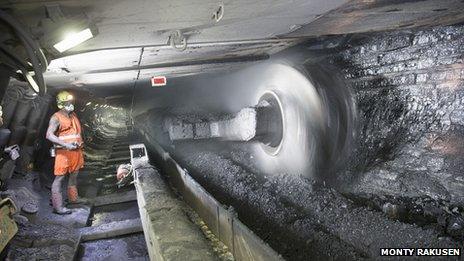
Kellingley began production in April 1965
The company's other deep coal mine, Thoresby Colliery in Nottinghamshire, is also earmarked for closure.
Business Minister Michael Fallon said in April: "There is no value-for-money case for a level of investment that would keep the deep mines open beyond this managed wind-down period to autumn 2015."
Mr Tempest said the Kellingley miners were "asking for their industry to be kept open so they can work, make a living and contribute to society with their taxes and the money they spend".
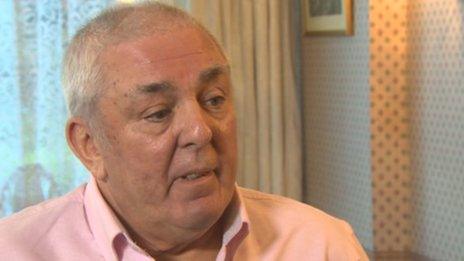
"These lads at the pit need someone to stand up for them," said John Tempest
A £10m government grant has kept many miners working for an extra year but a phased closure is due to start next April.
The fact there are coal reserves still underground at Kellingley makes it "soul destroying", said Mr Tempest.

The UK coal industry
1900: 3,384 working mines
1920: 1.24 million people working in mining
1955: 225 million tonnes of coal produced
1984: 187,000 people working in mining
2014: 2,000 people working at the last three deep mines
2015: Two of those mines, Kellingley and Thoresby, to close

"If a pit comes to the end of it's time, there's no coal left or it's hard to get, let's close it.
"But with a pit like Kellingley, with the resources and the experienced miners... why won't the government help the mining industry like the banking industry?" he asked.
Working underground engenders a feeling like no other job, according to Mr Tempest.
"It's like a family because everybody has to look after their friends down the pit."
Nigel Kemp, 49, who started as a miner at Kellingley 32 years ago, said: "I thought I'd be there for life, I really did."
Despite the looming closure morale at work was still good, he said.
"I love my job but nobody knows who is next to go, half the workforce will get their notice next April and the others will be likely to stop on until the end of 2015.
"Every time we get over one hurdle, we find a bigger hurdle to get over."

Jack Robertson, 22, has worked at the pit for six years
Jack Robertson is only 22 years old but has worked at the pit as a fitter since he was 16.
"I've been privileged to work with great men, shame it's going to end. I owe the pit a lot," he said.
"I wanted to do this for the rest of my life because I love what I do. I'll have to watch the men I've grown up with leave, it's not going to be nice."
Prior to the 1984 miners' strike there were 56 collieries across Yorkshire but only two, including Kellingley, remain.
The closures of Kellingley and Thoresby would leave employee-owned Hatfield Colliery, in South Yorkshire, as the country's last remaining deep mine.
- Published21 August 2014
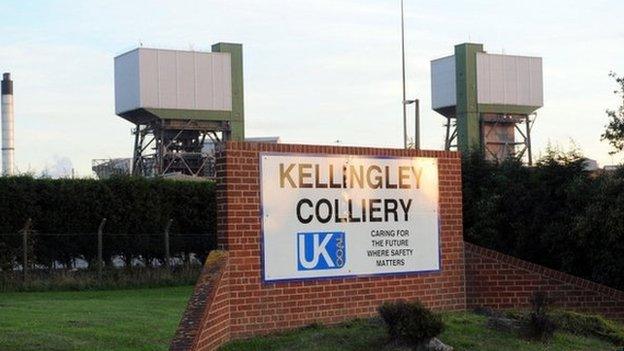
- Published22 May 2014
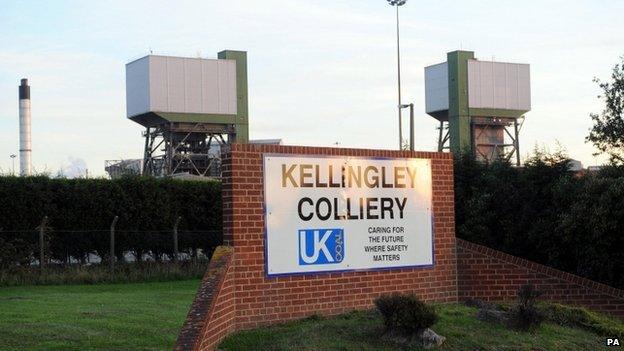
- Published22 April 2014
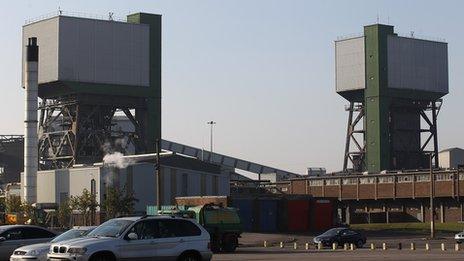
- Published10 April 2014

- Published10 April 2014
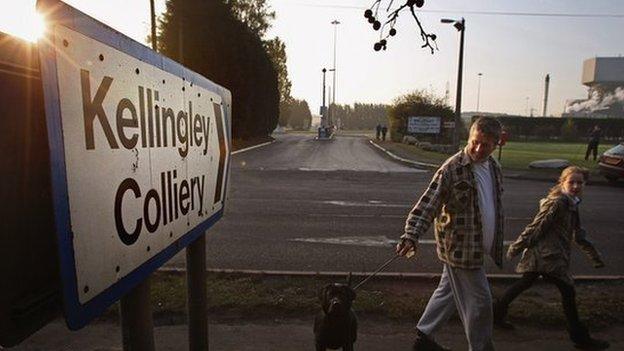
- Published29 March 2014
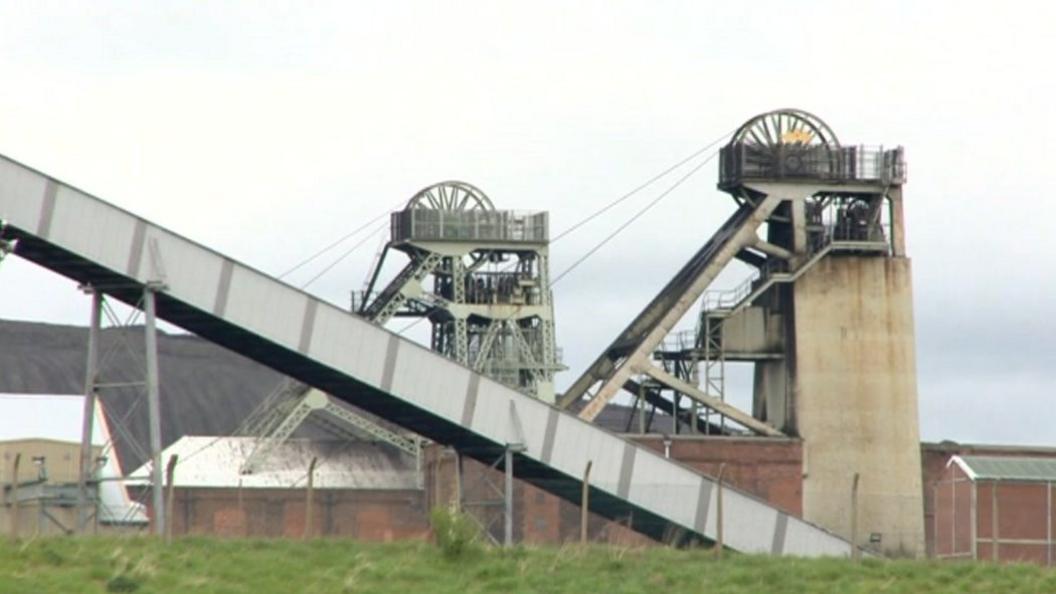
- Published2 April 2014
